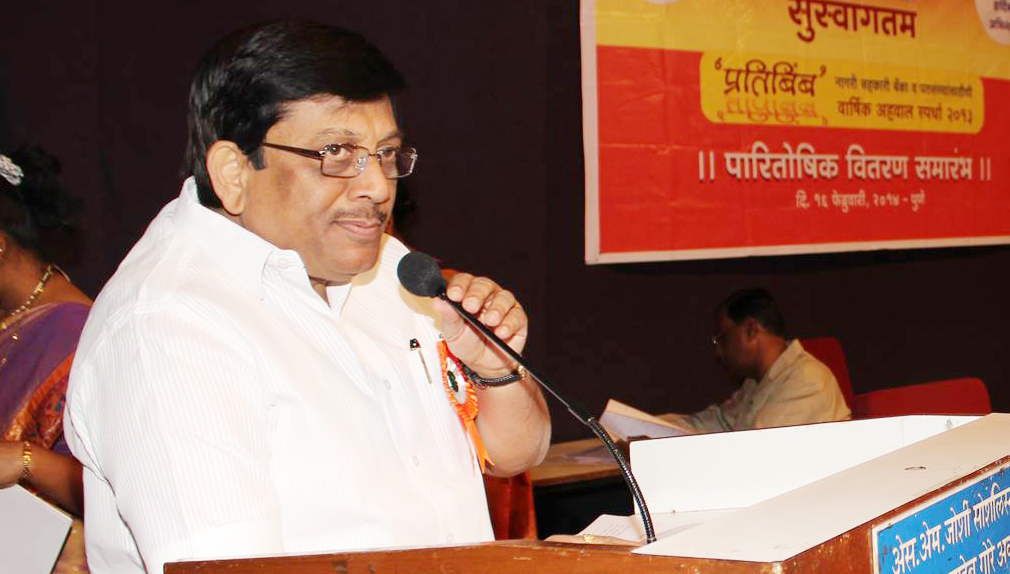Maharashtra urban co-op banks are objecting to the RBI diktat in which it has prohibited UCBs from offering interest rates on deposits exceeding the ones being offered by the State Bank of India.
Voicing the stiff competition UCBs are pitted against, Nafcub Vice-President and a senior cooperator from the state Vidyadhar Anaskar says “Though we appreciate the Reserve Bank’s stand that in order to reduce the cost of funds of an UCB under supervisory action,
it should reduce its deposits rates as one of the cost-cutting measures. However, we do not understand the logic behind linking the deposits rates of such UCBs with that of the State Bank of India”, Anaskar added.
Explaining SBI’s preeminent position, Anasakar says that being a giant public sector bank, the SBI hardly felt the need to go for deposit mobilization. The Central Government as well as other State Governments, local bodies, Government offices, semi – government offices, OCBs, NRIs, Banks, MFs, Corporates, MNCs etc. keep their huge funds with SBI, he added.
“However, this is not the case with Co-operative banks. Mobilization of deposits through intensive deposit collection has been regarded as the major task before Urban Co-operative banks in the country, especially for small and middle-sized banks”, he felt.
Given the present scenario of the banking industry, banks are operating in a totally deregulated interest rate environment. They are facing stiff competition in the area of deposit mobilization due to attractive returns and concessions reaped by depositors for different forms of deposits. From the long-term point of view, the banking system can be viable only if it can mobilize deposits at the required rate, and this can be done by making a bank deposit more attractive as a financial asset than other banks and FIs.
Unless the bank could attract sizable deposits, it would not be able to meet the demand for credit. UCBs are no exception to it. They also face competition not only from the peer banks but also from other financial intermediaries such as NBFCs, MFs, FIs, Post Offices etc. in the areas of resource mobilization as well as deployment.
“The deposit rates of the State Bank of India range from 4.5% to 6%. If you mandate a bank under supervisory action, to fix the above rates for deposits of similar maturity, it would become difficult for the bank not only to attract new depositors but also to retain the existing ones”, writes Anaskar in a letter to RBI.
In his letter he says “Further, not being able to retain its existing customers as well as attract new customers, the bank may face problems while lending to new, prospective borrowers and will also attract supervisory action for deteriorating other financial indicators such as rising CD ratio, decline in percentage of deposit erosion etc., and in that case, it would be difficult for the bank to come out of Supervisory Action Framework.”
There are instances in the past that many banks experienced financial problems, just because they could not garner deposits & could not increase their credit portfolio, the major avenue to increase revenue and reduce NPAs. Many good account holders and borrowers moved to other banks, leaving such banks under supervisory action saddled with substandard/NPA loans, the letter adds.
In view of the above, we opine that the banks under Supervisory Action, at the most may be advised by the Reserve Bank to fix interest rates for deposits on consideration of their overall liquidity conditions, demand factors, assets liability conditions, risk evaluation and other market driven factors etc. Further, the Reserve Bank may lay down such conditions for lending also so as to ensure that only secured loans could be given by the banks, he demanded.
“Substantiating as above, we request the Reserve Bank to withdraw the operational instruction of ‘Do not offer interest rates on deposits (fresh/renewal) more than those offered by SBI for deposits of similar maturity’ imposed on the banks u/s 36(1) of the B.R.Act 1949 (AACS) and shall come out with such solutions that will truly help these banks to improve their financial health”, Anaskar concludes.
